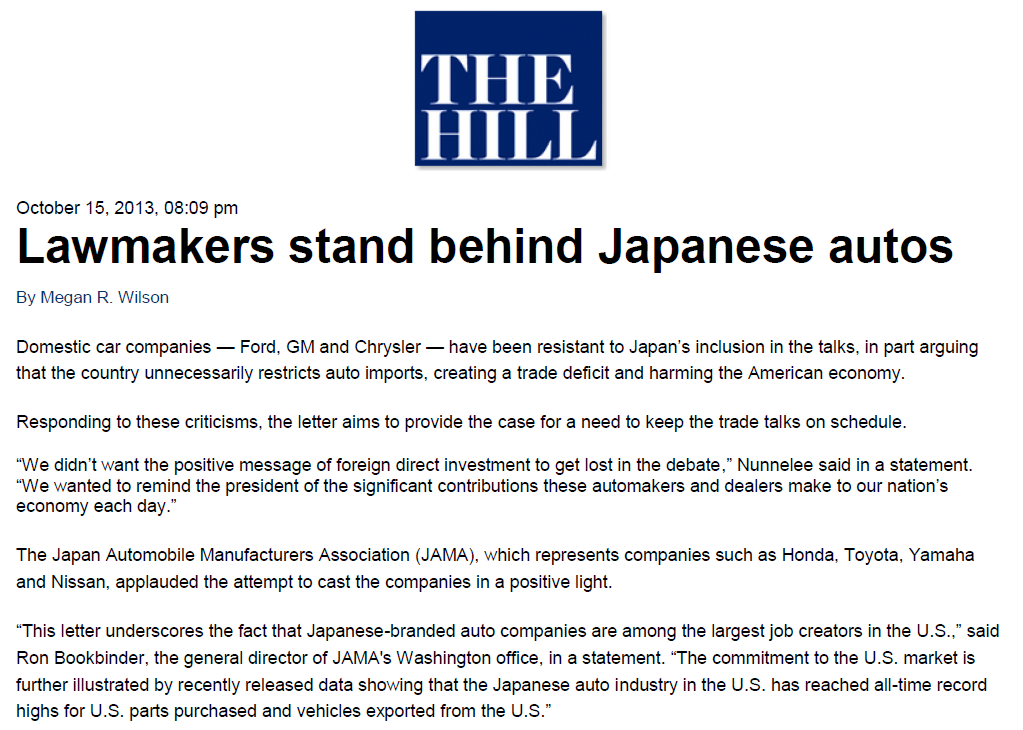By Megan R. Wilson
October 15, 2013
Domestic car companies — Ford, GM and Chrysler — have been resistant to Japan’s inclusion in the talks, in part arguing that the country unnecessarily restricts auto imports, creating a trade deficit and harming the American economy.
Responding to these criticisms, the letter aims to provide the case for a need to keep the trade talks on schedule.
“We didn’t want the positive message of foreign direct investment to get lost in the debate,” Nunnelee said in a statement. “We wanted to remind the president of the significant contributions these automakers and dealers make to our nation’s economy each day.”
The Japan Automobile Manufacturers Association (JAMA), which represents companies such as Honda, Toyota, Yamaha and Nissan, applauded the attempt to cast the companies in a positive light.
“This letter underscores the fact that Japanese-branded auto companies are among the largest job creators in the U.S.,” said Ron Bookbinder, the general director of JAMA’s Washington office, in a statement. “The commitment to the U.S. market is further illustrated by recently released data showing that the Japanese auto industry in the U.S. has reached all-time record highs for U.S. parts purchased and vehicles exported from the U.S.”
John Mendel, Honda’s executive vice president of sales, cites billions of dollars of investments placed into the company’s American operations, including manufacturing more than 90 percent of its vehicles in the United States and being on pace to export more cars from North America than it imports from Japan.
“For more than 30 years, Honda has demonstrated that the U.S. is a great place to manufacture and a bipartisan group of legislators has witnessed in their own districts the job-creating benefits that come with supporting strong foreign direct investment and a free trade agenda,” Mendel said in a release.
The lawmakers, which include Reps. Spencer Bachus (R-Ala.), Darrell Issa (R-Calif.), Debbie Wasserman Schultz (D-Fla.) and Jim Moran (D-Va.), told Obama that making the United States a “premier location for global companies to build, sell and export their products” is an end result of finishing the deal.
“America has a proud history of promoting policies that encourage multi-national corporations to invest billions of dollars in our economy,” Gallego said in a statement. “U.S. workers have been the chief beneficiaries of that investment, including the 2,500 people employed in San Antonio who are building and selling new vehicles.”
Last week, the leaders of the Trans-Pacific Partnership said they were on track to have the agreement finished by its end-of-year timetable.
“I think there is so much focus right now and momentum behind this,” said U.S. Trade Representative Michael Froman. “That is a very positive dynamic for trying to resolve the remaining issues.”
—Vicki Needham contributed.
Updated on Oct. 16.
Original Source: The Hill
Click to view PDF


